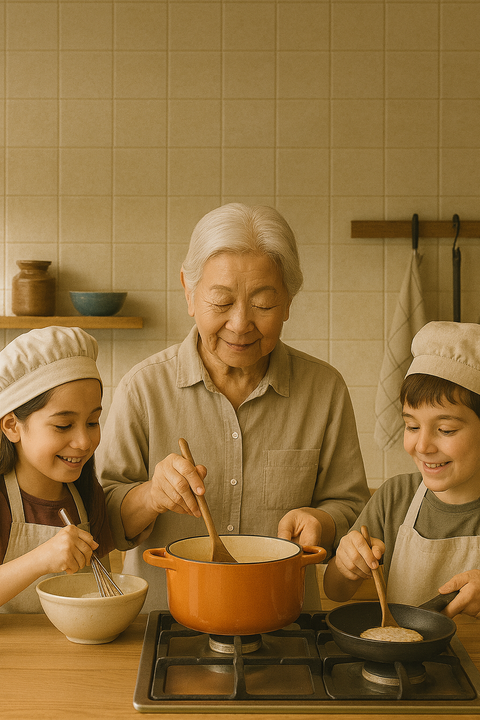This past summer, my daughter attended school in Japan. It was just about six weeks, but I think it was a really interesting experience for her. The school she attended was the same elementary school I went to when I was a kid. The school building and the curriculum haven’t changed much since I went there.
She had swimming class twice a week, and school usually ended around 2 or 3 PM. After school, kids would walk home by themselves. Then, they'd often go to the park or visit a friend’s house.
Children in Japan seem to have much more independence compared to most North America kids. Watching my daughter and how she interacted with the school system made me reflect on a few things that stood out:
-
What Japanese discipline does to you
-
The effect of school lunch on children
-
The role of swimming class in school life
Today, I’d like to write about Japanese discipline.
More Than Just Manners
When I was growing up in Japan, discipline wasn’t just about following rules — it was about learning how to think beyond yourself.
My mom was especially strict about two things:
Saying thank you and not leaving food on your plate.
We were always told to say “thank you” — not just to be polite, but to genuinely recognize the effort behind what we received. If someone did something for me or gave me something and I forgot to say thank you, my mom would quietly remind me, “Did you say thank you yet?”
And when it came to food — well, I wasn’t a fan of carrots or green peppers (honestly, many Japanese kids aren’t). But if I left food on my plate, my mom would always say:
“Don’t leave food. Animals died for you, and farmers worked hard to produce it.”
As a child, I didn’t fully understand. But now I realize she wasn’t just nagging me to clean my plate — she was teaching me to see the invisible work behind everyday things and to feel responsible for how I treated them.
Seeing the Effort Behind What We Receive
Looking back, I see now that this kind of discipline was really about teaching kids to understand context. It’s not just about using the right words or behaving the "correct" way — it’s about helping children grasp the bigger picture of how society works.
Why do we train our kids to say thank you?
Because it’s not just about being polite — it’s about truly understanding what someone gave up in order to give something to you.
For example, if your friend’s mom buys you a drink or treat, truly feeling gratitude means recognizing that she may have worked hard to earn that money. It’s not just a kind gesture — it’s someone’s time, effort, and care being shared with you.
And why do we ask our kids to eat everything that’s served to them?
Because even food itself doesn’t simply appear. In Japan, children are taught to think about the journey their meal takes — from the farmers who grow it, to the systems that transport it, to the people who prepare it. Food doesn’t just “show up.” Teaching kids to see this helps them connect the dots between what they receive and the effort it took to get there.
Balance and Nuance
That said, I don’t want to overpraise Japanese culture without acknowledging its complexities. Japanese people are raised not to bother others — which can be a beautiful value in group settings, but it can also be emotionally heavy. The pressure to constantly consider others can sometimes make it hard to express your own needs or feelings.
Someone once said,
“Japanese education teaches you how to be a good citizen. North American education teaches you how to be a good independent thinker.”
I think that’s a fair way to describe the difference.
I feel truly lucky that my daughter gets to experience both systems. Each has its strengths. Watching her navigate both helps me reflect more deeply too — not just as a parent, but as someone living between cultures.
About the Author
Hi, I’m Fumi — a Japanese chili oil maker and co-founder of Abokichi. Our chili oil - OKAZU is a unique, small-batch chili oil inspired by traditional Japanese flavors, made with organic miso and packed with deep, natural umami.
Our version is different from your typical chili crisp or spicy oil. In Japan, it’s known as taberu rayu, or “edible chili oil,” and we’re proud to be the only makers in North America producing organic miso-based taberu rayu using clean, high-quality ingredients.
We also make ABO Miso Soup, an upcycled, instant miso soup that’s ready with just hot water. It’s made from the byproduct of sake brewing and naturally rich in amino acids thanks to fermentation. That means it delivers bold umami flavor without using animal products or MSG.
As someone rooted in Japanese food and culture, I occasionally share the stories, values, and everyday moments that shape how I cook — and how I live. Not always, but when something feels worth sharing.



